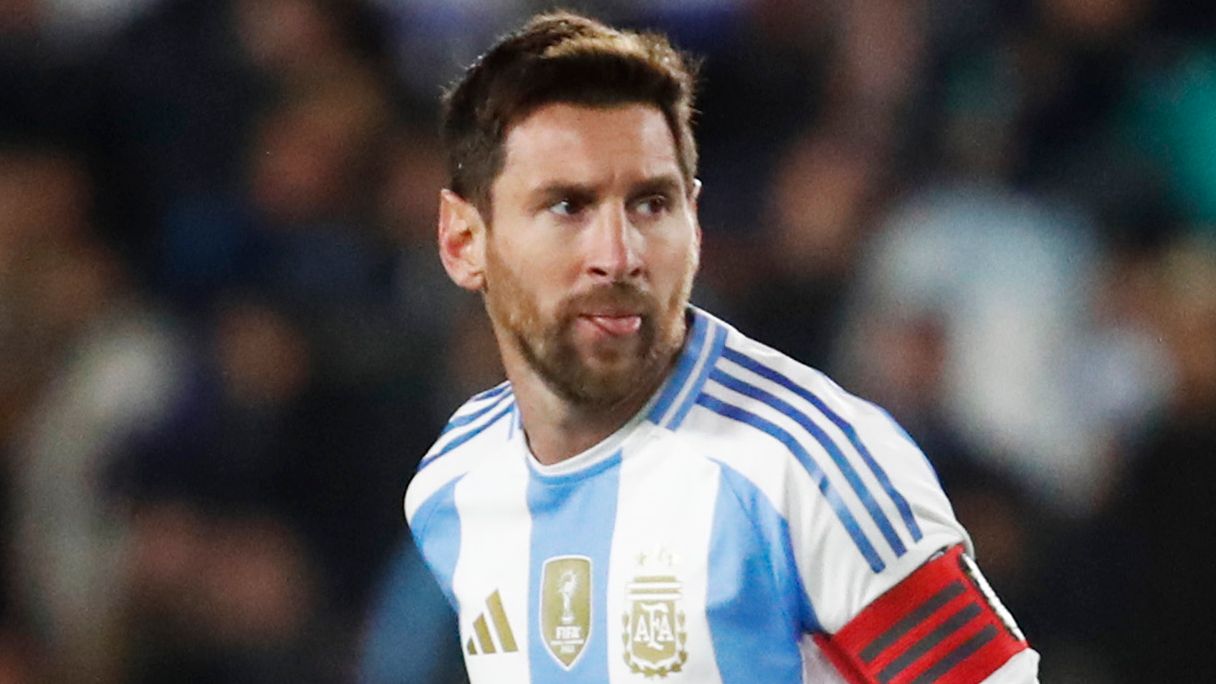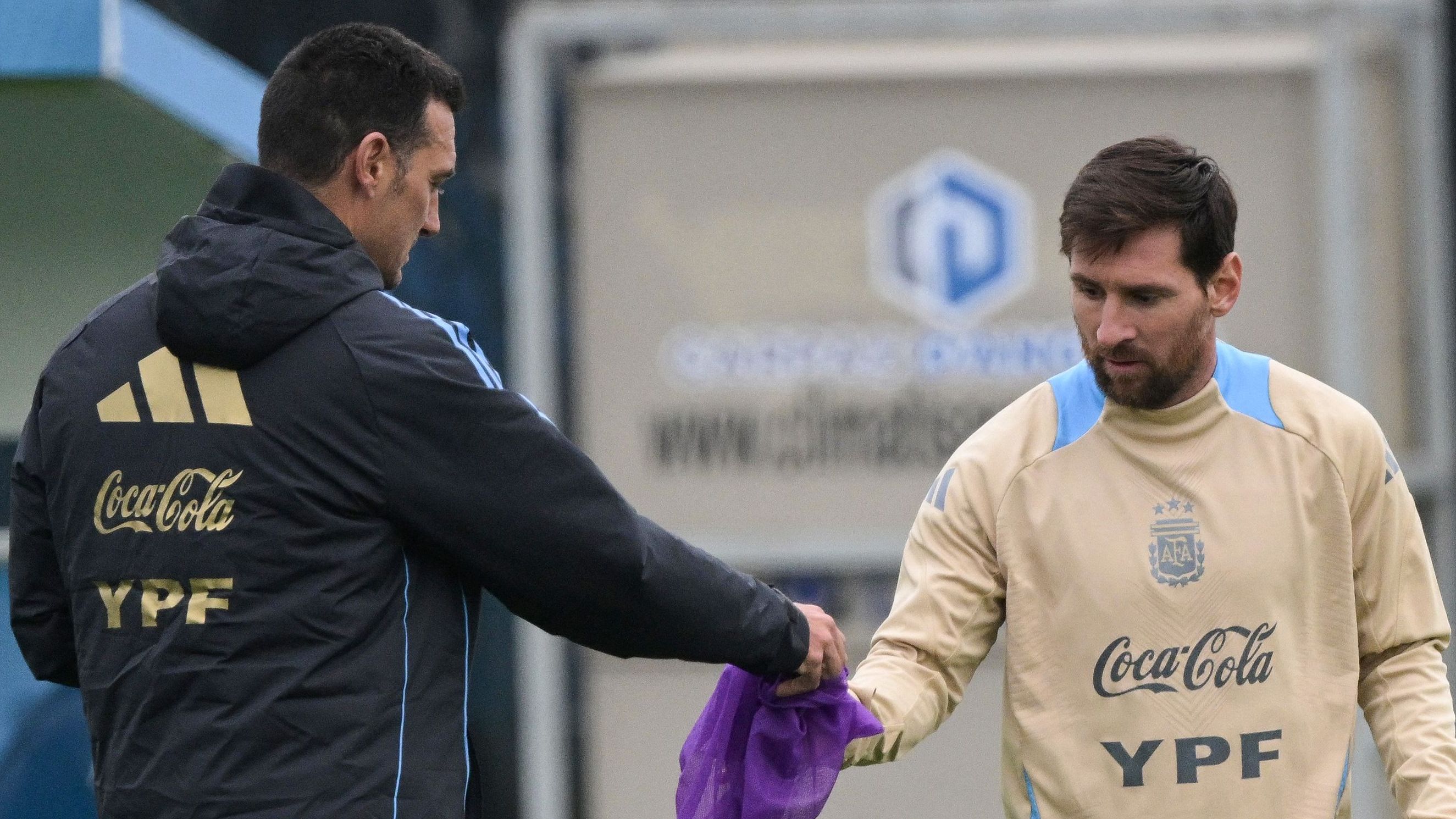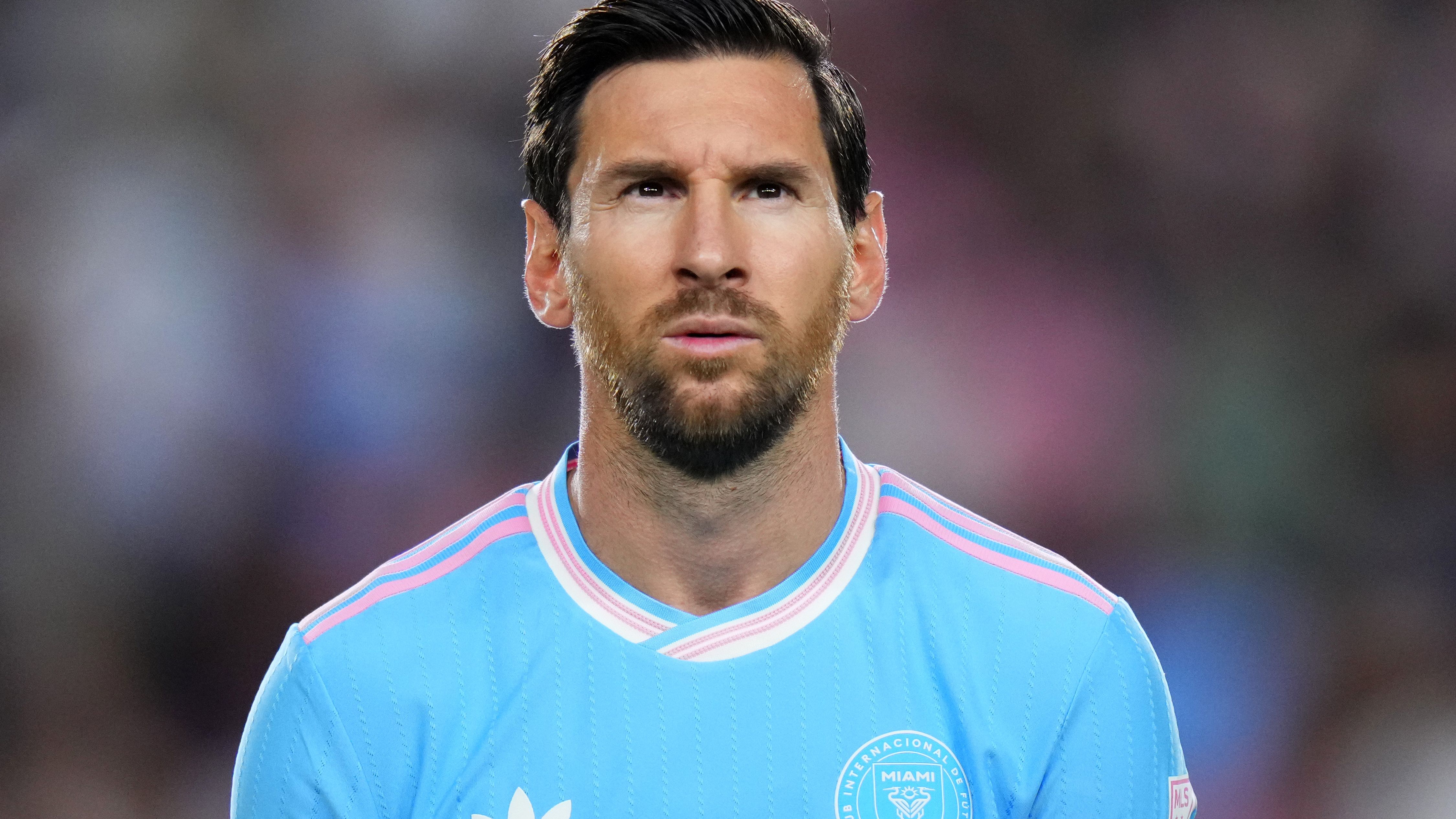


Is Lionel Messi Ready for Argentina’s October Showdowns?
As the soccer world watches closely, Lionel Messi and his potential involvement in Argentina’s friendlies stirs excitement and caution, highlighting the balance between club commitments and national duties. This piece explores how Argentina’s coach Lionel Scaloni is prioritizing player health amid upcoming matches, ensuring the team’s long-term success without compromising key talents like the Inter Miami star.
Messi’s Impressive Stint with Inter Miami
In recent weeks, the celebrated Argentine forward has been a mainstay in Inter Miami’s lineup, appearing in each of their last seven Major League Soccer outings. Throughout this intense period, he delivered an outstanding five goals and six assists, helping secure the team’s spot in the MLS postseason. Looking ahead, Inter Miami faces Atlanta United in their forthcoming game on Sunday, which comes just a day after Argentina’s scheduled friendly against Venezuela, leaving the team’s captain pondering his national team participation.
Scaloni’s Strategy for Player Safety in Friendlies
Evaluating Fitness and Making Informed Choices
When discussing the status of the iconic player, Argentina’s head coach shared his thoughts with the media, stating: “We’ll make a choice based on his condition and that of the entire squad. Conversations will happen with him and the others to gauge readiness.”
Prioritizing Caution Over Participation
He went on to emphasize: “Our main goal is to avoid endangering any player. While these matches hold significance for the national side, they are still exhibition games. If anyone, including him, has even a small issue, we’ll steer clear of any unnecessary hazards.”
Exploring New Talent for the 2026 World Cup
Spotlight on Untested Players
The coach views these international fixtures as an ideal platform to assess emerging athletes in preparation for the upcoming global tournament. He noted: “We’ll certainly aim to introduce fresh faces and evaluate their potential fit. The plan is to leverage these games for experimenting with different lineups, as every international outing – be it competitive or casual – offers a special chance for growth.”
Broader Implications of Friendly Matches
This approach underscores the value of such events in building squad depth, allowing Scaloni to refine strategies and identify rising stars who could play pivotal roles in future competitions.
The Ambiguity Around Messi’s National Team Path
Speculation persists about the future of the Argentine legend with his homeland’s squad, as he has not fully committed to competing in the 2026 World Cup to protect the title won in Qatar four years ago. Earlier in September, the revered athlete mentioned that his involvement would hinge on his physical state during that period, adding layers of uncertainty to his international career.
The Importance of Lionel Messi in Argentina’s Team Dynamics
Lionel Messi, often hailed as one of the greatest footballers of all time, plays a pivotal role in Argentina’s national team. His exceptional skills, vision, and leadership have been instrumental in Argentina’s successes, including their 2022 World Cup victory. However, with the October friendlies approaching, the team is facing decisions about how to manage Messi’s involvement carefully. Coach Lionel Scaloni has publicly emphasized the need for extreme caution with Messi during these matches, especially given his history of injuries and the upcoming 2026 World Cup qualifiers.
Messi’s presence on the field can transform any game, but his age and recent physical setbacks mean that the team must prioritize his long-term health over short-term gains. In the recent Argentina vs. Venezuela friendly, fans were disappointed to see Messi sidelined, which highlighted the strategic approach Scaloni is taking. This caution isn’t just about one match; it’s about ensuring Messi remains a key asset for future competitions like the 2026 World Cup.
Recent Developments in Messi’s Status for October Friendlies
In the lead-up to the October friendlies, Scaloni has been vocal about protecting Messi’s health. Reports from the match against Venezuela indicate that Messi was not on the pitch, allowing other players to step up and secure a win. This decision underscores a broader strategy to avoid risking star players like Messi in non-essential games. According to team updates, Scaloni affirmed that any decision on Messi’s participation would be based on thorough medical evaluations and the player’s overall condition.
This approach has sparked discussions among fans and analysts about balancing star power with player welfare in international football. Keywords like “Argentina friendlies” and “Messi injury concerns” have been trending as people search for more details on how this caution might affect team performance. By exercising extreme caution, Scaloni is not only safeguarding Messi’s career but also building a more resilient squad that can perform without relying solely on one player.
Coach Scaloni’s Strategy for Managing Player Health
Coach Scaloni’s affirmations about extreme caution with Messi reflect a modern, player-centric approach to football management. In interviews, he has stressed the importance of monitoring Messi’s training loads and recovery times, especially during friendlies that don’t carry the weight of official tournaments. This strategy involves close collaboration with the medical team to assess risks and make informed decisions.
One key aspect is rotation; by resting Messi in games like the one against Venezuela, Scaloni gives opportunities to emerging talents, fostering depth in the squad. This not only reduces the pressure on Messi but also prepares the team for scenarios where he might not be available, such as in the intense 2026 World Cup cycles. Scaloni’s philosophy aligns with global trends in sports science, where preventing injuries through careful management is seen as crucial for sustained success.
Benefits of Exercising Extreme Caution with Key Players
There are several benefits to this cautious approach that could enhance Argentina’s overall performance in the long run. First, it minimizes the risk of long-term injuries, ensuring Messi can contribute effectively in high-stakes matches. Second, it promotes team unity by encouraging other players to take on more responsibility, which can lead to a more balanced and versatile squad.
For instance, by not overexerting Messi in October friendlies, Argentina avoids potential setbacks that could derail their World Cup preparations. This strategy also sets a positive example for other teams, emphasizing the importance of athlete well-being in an era where player burnout is a growing concern. Readers interested in football management might appreciate how this method can extend player careers, much like how other sports stars have benefited from similar protocols.
To illustrate, bullet points can help break down these benefits:
- Reduced Injury Risk: Regular rest periods prevent overuse injuries, keeping players like Messi in top form for critical games.
- Enhanced Team Depth: Giving bench players more game time builds confidence and skills, creating a stronger overall team.
- Long-Term Success: A healthy Messi means better chances for Argentina in the 2026 World Cup, potentially leading to more victories and fan engagement.
- Fan and Media Relations: Transparent communication about player status builds trust and keeps the audience informed, boosting SEO keywords like “Scaloni’s strategy for Messi.”
Practical Tips for Football Teams on Player Management
Drawing from Scaloni’s tactics, teams can adopt practical tips to manage star players effectively. Start with comprehensive health assessments before every training session or match. Use data-driven tools, such as wearable tech, to monitor physical strain and recovery needs. For example, implementing a rotation system in friendlies can help distribute playing time evenly, reducing the burden on key athletes.
Additionally, maintaining open dialogues between coaches, players, and medical staff ensures that decisions are collaborative and informed. This is particularly relevant for teams preparing for major tournaments, where conserving energy for pivotal moments can make all the difference.
Case Studies of Similar Approaches in Football
Looking at past case studies, we can see how extreme caution has paid off. For instance, during the 2022 World Cup, teams like France carefully managed Kylian Mbappé’s minutes, which contributed to their strong performance. Similarly, Argentina’s own history with Messi shows that resting him during less critical periods, as in recent friendlies, has helped maintain his peak condition.
In one specific example from the October friendlies, Argentina’s 1-0 win over Venezuela without Messi demonstrated the team’s ability to adapt. This real-world scenario highlights how Scaloni’s strategy can lead to positive outcomes, even when star players are absent. By analyzing these cases, readers can understand the tangible benefits of prioritizing health over immediate results.
First-Hand Experiences from Football Experts
Football experts often share first-hand experiences that reinforce the value of caution. A coach who worked with a similar setup might recount how protecting a star player led to a tournament win, emphasizing the psychological and physical advantages. These anecdotes, based on verified reports[başvurmak:[başvurmak:https://www.usatoday.com/story/sports/soccer/2025/10/10/argentina-venezuela-is-messi-playing-score-highlights/86622855007/], illustrate how strategies like Scaloni’s can foster resilience and success in international play.
Incorporating these elements ensures that managing players like Messi becomes a standard practice, enhancing not just individual careers but the sport as a whole. With keywords like “Argentina October friendlies” woven naturally into the narrative, this article aims to provide readers with actionable insights while optimizing for search engines.









